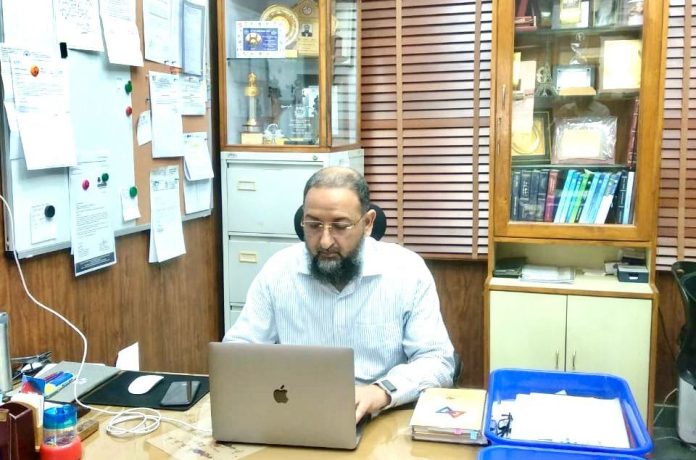Antimicrobial Resistance (AMR) has been termed a “silent pandemic” by World Health Organization (WHO), posing an insidious threat to public health. Unlike rapidly spreading pandemics like COVID-19, AMR progresses slowly, making it difficult to recognize the gravity of the issue. Drug-resistant infections silently contribute to treatment failures, and this growing challenge demands immediate and sustained global efforts to curb its spread and protect the efficacy of existing antimicrobial treatments.
Asad U Khan, Professor of Microbiology in the Biotechnology Department at Aligarh Muslim University (AMU), shed light on the alarming rise of AMR. He highlighted the discovery of New Delhi metallo-beta-lactamase-1 (NDM-1) superbug in 2008-09, which marked a turning point in the fight against bacterial infections.
“NDM-1 has since evolved into over 60 variants and has become a major global health concern,” Professor Khan stated.
He further explained that the Indian subcontinent and Western Balkans have been identified as significant reservoirs for the spread of AMR.
Speaking about his research at AMU, Professor Khan revealed that his lab was the first in India to discover the NDM-4 superbug in 2014. He emphasized the gravity of the situation, noting that NDM-1 is capable of rendering even powerful antibiotics like imipenem and meropenem ineffective, with over 50% of resistant infections no longer responding to these treatments. He warned that colistin, often used as a last-resort antibiotic, is now facing resistance, with 20-30% of bacterial infections becoming untreatable.
A recent study published in The Lancet on September 16, further underscores the critical situation. The report, which examined data from 1990 to 2021 across 204 countries, projected that by 2025, nearly 2 million people could die annually from AMR-related infections, with that number expected to double by 2050.
Professor Khan cited this report, warning that 70% of the projected deaths will be among those aged 70 or older. However, he also pointed out that up to 92 million lives could be saved through improved access to quality antibiotics, water sanitation, and hygiene measures.
Looking ahead, Professor Khan stressed the importance of adopting a “One Health” approach, which recognizes the interconnectedness of humans, animals, plants, and the environment in the fight against AMR. He also called for enhanced AMR surveillance and regulatory measures to control the spread of drug-resistant infections. Global investments in low-income hospitals, access to diagnostic tools, and policies to reduce antibiotic overuse in farming are essential, he added, along with innovative research to develop effective interventions.




